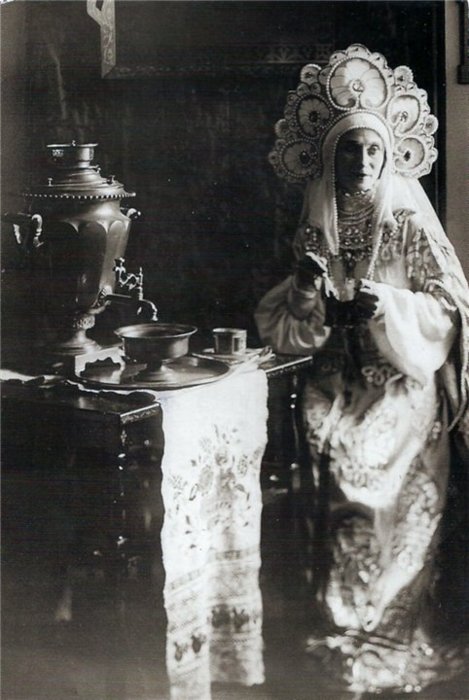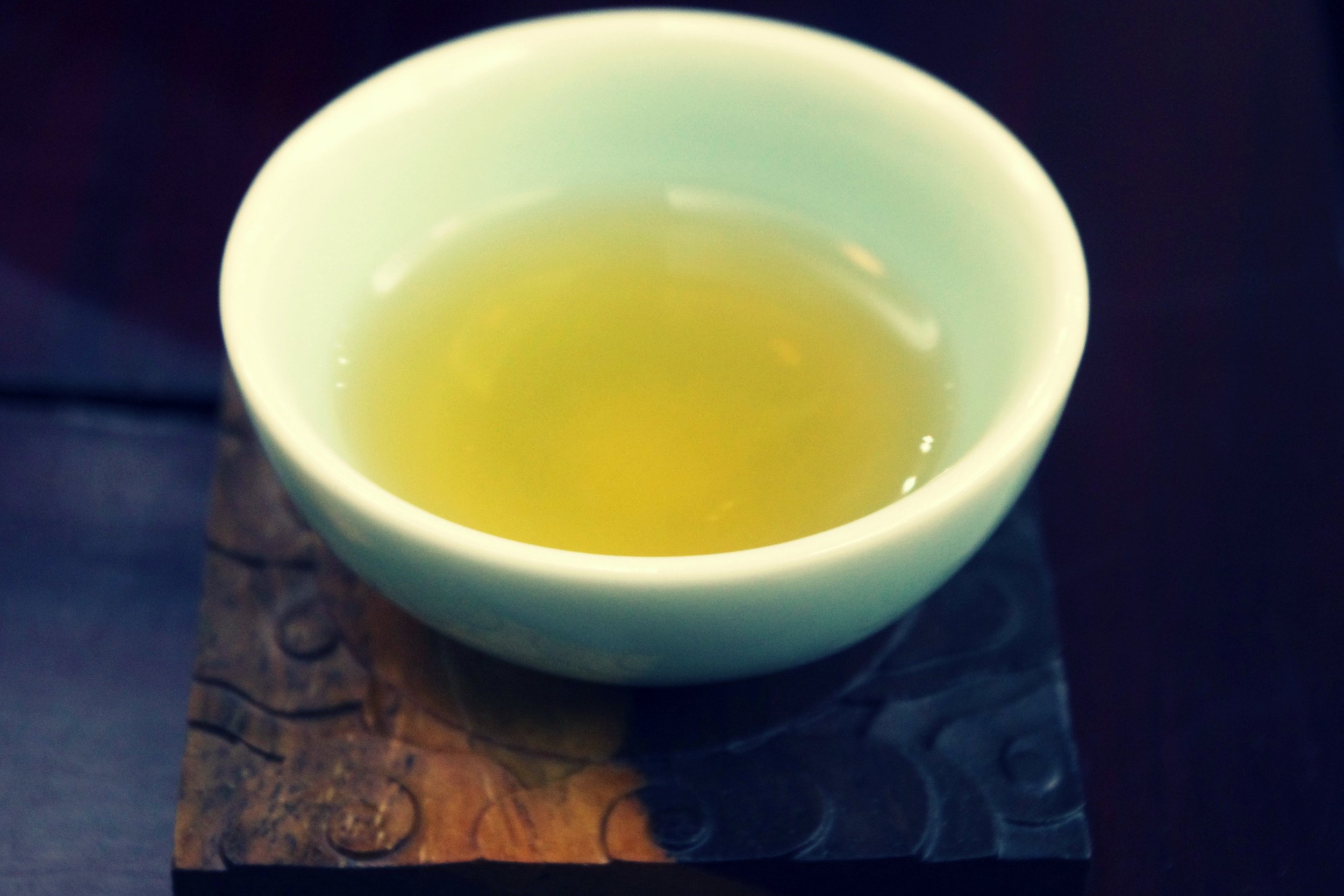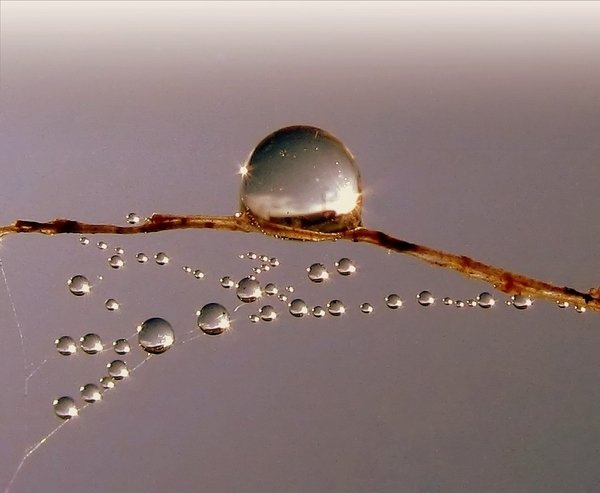Tea Ceremony Talk and Demonstration at CHALICE WELL TRUST in Glastonbury
I am so honoured and humbled to be invited to be part of the amazing annual festival in Glastonbury to give a talk on Tea Ceremony and give a demonstration of the Tea Ceremony too.
This festival is organised by Chalice Well Trust. “Chalice Well is among the best known and most loved holy wells in Britain. Many legends are attributed to its chalybeate waters, which flow ceaselessly at a steady rate and temperature that never varies. Not least among these is that they represent the blood of Christ miraculously springing forth from the ground when Joseph of Arimathea buried or washed the cup used at the Last Supper. For others the waters are acknowledged as the essence of life, the gift from Mother Earth to sustain its living forms and so a continuous spring like Chalice Well is a direct expression of an unbounded life force.”
This year’s Festival is called “Many Paths, One Source” and is centred around Buddhism - and the numerous traditions that are part of it - Zen, Theravada, Vajrayana etc.
And of course, Tea Ceremony was always present in early buddhist traditions - after all Wu De, a man I call my tea teacher and founder of the Global Tea Hut community, wrote a book with the name “Tea and Zen One Flavour” - showing just that. That Tea and Zen are one and the same.
Tea has been a silent transmitter of wisdom and truth, from master to students, something that couldn’t be transmitted in a linguistic manner.
This and many other things we will explore in this Tea Ceremony talk and Demonstration on 9 June 2019.
Here is a link to the programme of events there - check them out, it’s amazing! https://chalicewellmanypathsonesourcefestival.org/event/tea-ceremony-talk-and-demonstration/
Pushkin on TeaПушкинская женщина-лебедь пьет чай
When I stumbled across this picture on Pinterest, I simultaneously thought of Pushkin somehow. And a few minutes later I also stumbled upon his famous phrase about tea. It seemed to me that these two things - image and a phrase - were almost matched together. They really seemed to belong to each other. As if Pushkin said his tea phrase when he saw this picture. Or may be when he saw this woman. Because she does look like she could be from one of his magical fairytales. A swan-queen. Just with tea. "Ecstasy is a glass full of tea and a piece of sugar in the mouth"
- Alexander Pushkin
“Экстаз -это полный стакан чая в руках и кусок сахара во рту”
- Алексанр Пушкин
Понравилась эта фотография, и почти одновременно, как я её увидела, мне на глаза попалась фраза о чае Пушкиным. И эта картинка вместе с этой фразой сошлись, как будто они и принадлежали друг друг всегда. Как будто Пушкин свою фразу сказал именно тогда, когда увидел эту картинку. А может эту женщину. Которая как будто вышла из его сказки. Только с чаем.
Beautiful Tea Poem
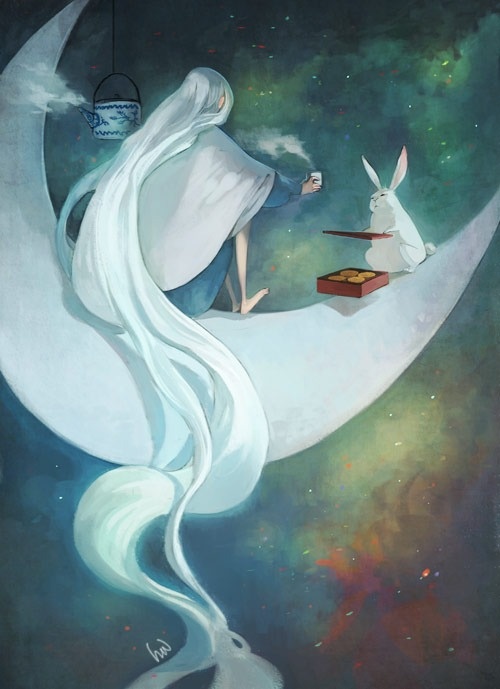 I stumbled across a beautiful poem today... And somehow it really appealed to me, the idea that we, like tea, are made out of water, stars, sun, and sky..
I stumbled across a beautiful poem today... And somehow it really appealed to me, the idea that we, like tea, are made out of water, stars, sun, and sky..
"As the leaves of this tree are, I too am made of the water, the sky, sun and stars; I share this essence with all the Ten Thousand Things. And in so doing, empty myself and my cup. As tea, I am now free to transcend the moment, Finding heaven in a leaf. I ride cinnabar mists Beyond the temple stairs And blue peaks To soar beneath the unveiled moon, Glancing downwards but once When the temple bells chimed."
From the book "The Way of Tea" by A.Fisher Image is from Pinterest
Finding time for teaВремя для чая...
 A nice tale about putting away some time for tea - even if you are very busy, you can always find some time to sit down - by yourself with tea, and the whole world can wait... a little bit...
A nice tale about putting away some time for tea - even if you are very busy, you can always find some time to sit down - by yourself with tea, and the whole world can wait... a little bit...
Emperor Qian Long of the Qing Dynasty was a great tea man. In the later years of his reign he would often retire to some secluded spot for a day of tea drinking. They say that on one such occasion his top councillor asked: "How can the nation go without the wisdom of its emperor for a day?" Grinning, the emperor replied: "And how can that emperor go without his tea for a day?"
Очень красивая история о том, как нужно выделять время для чая - даже если Вы заняты, вы всегда можете найти время, чтобы сесть - сами с собой и с чаем, и весь мир может подождать… немного…
Император Цьян Лон (династия Цин) был великим человеком. В последние годы своего правления он часто удалялся в уединенное место чтобы провести день вместе с чаем. Говорят, что в один из таких дней его главный служащий спросил его: "Как народ может прожить целый день без мудрости своего императора?" Улыбаясь, Император ответил: "А как император может прожить целый день без чая?"
Drinking Oolong teas will never be the same again...И как после этого пить Улуны?
Chinese say, that Oolong Teas are like naked women dressed in the same clothes. On the outside they all look similar, as they all go through almost the same processing - sometimes roasting is longer or shorter, but basically the same process - the same dress. But once you add hot water, the real body, the real personality of tea comes out. As if these women get undressed and suddenly you can see that all of them have very different shapes, bodies...
Китайцы говорят, что улуны - это как обнаженные женщины в одинаковых одеждах. Снаружи все они выглядят одинаково - процесс обработки одинаков для всех - иногда какой-то чай прожаривается дольше или меньше, но в принципе, та же самая обработка - одинаковое "платье". Но как только мы добавляем горячую воду - тело, характер чая выходит наружу. Как будто эти женщины сбросили свою одежду, обнажились, и мы вдруг увидели, что они совсем разные....
Вот и вопрос, как после этого пить темные улуны? Теперь, каждый раз заваривая эти чаи, буду представлять обнаженных женщин в пиалке.. :))))
On Serving Tea with your HEART ♥
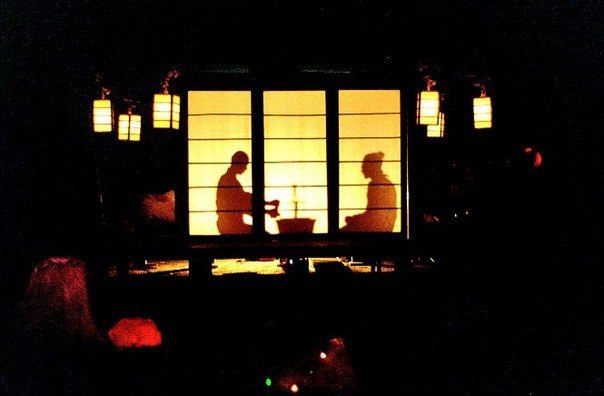 What is more important - having a perfect tea ceremony visually, or having it done imperfectly but with the heart full of Love?
What is more important - having a perfect tea ceremony visually, or having it done imperfectly but with the heart full of Love?
Once Rikyu took two disciples to have tea with an old man, quite poor, who made exquisite iron tea kettles.
The man’s hut was shabby, his utensils inferior and mismatched, his tea not of the best quality. His hands shook as he performed the ceremony, and at one point he even dropped the tea scoop.
Walking home with Rikyu, the two disciples couldn’t help but draw attention to all the man’s short comings as a host.
Rikyu upbraided them, saying, “His tea was superb. He used his best utensils, gave us his best tea, and served us with all the sincerity of his heart. He is your master.”
Many though there be Who with words or even hands Know the Way of Tea Few there are or not at all Who can serve it from the heart
Though you wipe your hands And brush off the dust and dirt From the tea vessels What’s the use of all thus fuss If the heart is still impure?
Seven Cups of Tea...
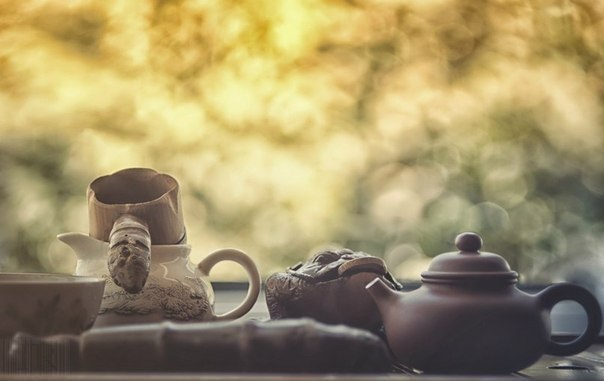 Drinking seven cups of tea will bring you very close to the enlightenment, according to the chinese poet Lu Tong:
The first cup kisses away my thirst,
and my loneliness is quelled by the second.
The third gives insight worthy of ancient scrolls,
and the fourth exiles my troubles.
My body becomes lighter with the fifth,
and the sixth sends word from immortals.
But the seventh—oh the seventh cup—
if I drink you, a wind will hurry my wings
toward the sacred island.
Drinking seven cups of tea will bring you very close to the enlightenment, according to the chinese poet Lu Tong:
The first cup kisses away my thirst,
and my loneliness is quelled by the second.
The third gives insight worthy of ancient scrolls,
and the fourth exiles my troubles.
My body becomes lighter with the fifth,
and the sixth sends word from immortals.
But the seventh—oh the seventh cup—
if I drink you, a wind will hurry my wings
toward the sacred island.
"Seven Cups of Tea" Lu Tong (Tang Dynasty)
Another Osho talk on Tea and ZenОшо о чае
 I accidentally stumbled upon Osho's "The Path of the Mystic" where he talks about tea, and what tea is for Zen Buddhist monks. I was touched reading this, because I see tea and tea ceremony in exactly the same way. When you are here and now, when you are aware, when you are in the flow - then even the most ordinary tea is meditation. It is Beauty. The beauty of life is in mundane things - if we are aware.
I accidentally stumbled upon Osho's "The Path of the Mystic" where he talks about tea, and what tea is for Zen Buddhist monks. I was touched reading this, because I see tea and tea ceremony in exactly the same way. When you are here and now, when you are aware, when you are in the flow - then even the most ordinary tea is meditation. It is Beauty. The beauty of life is in mundane things - if we are aware.
Question: How does the Man of Zen take his Tea?
Osho: For the man of Zen everything is sacred -- even taking a cup of tea. Whatever he does, he does as if he is in a holy space...
... In Zen there is no God. In Zen there is only you and your consciousness. Your consciousness is the highest flowering in existence up to now. It can go still higher, and the way to take it higher is to create your whole life in such a way that it becomes sacred.
A cup of tea is the most ordinary thing, but they make in every monastery a special temple for drinking tea, surrounded by beautiful trees, ponds... a small temple. You enter into the temple, taking your shoes off, and Zen believes, "Where you leave your shoes, leave yourself too." So you enter into the temple absolutely pure, uncontaminated. In the tea house, the tea temple, nobody talks. Only silence deepens. Everybody sits in the Zen meditative posture. The samovar is preparing the hot water for the tea, and the sound of the samovar has to be listened to as carefully as you have listened to your master. It does not matter what you are listening to, what matters is how you are listening.
Zen changes everything and takes a far more significant posture: it is not a question of what you are listening to, it is a question of how you are listening. So it doesn't matter whether the master is speaking or the sound of the samovar. And everybody is sitting there silently while the tea is being prepared.
Listening to the samovar... slowly the aroma, the fragrance of the tea leaves fills the temple. You have to be available to it as if it is divine grace. It is transforming everything small -- the smallest, most negligible things -- into something very significant, meaningful... giving it a religious color. And then the woman who is tending the tea will come to you. Her grace in pouring tea into your cups, and the silence, and the sound of the samovar, and the fragrance of fresh tea, creates a magic of its own.
Nobody speaks. Everybody starts sipping the tea, tasting as totally as possible, being in the moment as intensely as possible, as if the whole world has disappeared. Only the tea is there; you are there -- and the silence. Now a very mundane affair... all over the world people drink tea and coffee and everything, but nobody has been able to transform the character of the mundane into the sacred.
As the tea is finished, they bow down to the woman in respect. Slowly they go out of the temple without making any noise. In fact people all over the world don't enter into temples with such silence; in the temple all kinds of talking and gossips are going on. Women are enquiring about each other's jewelry and clothes -- in fact they go there to show off their jewelry and clothes; they don't have any other place to exhibit their possessions. All the temples and churches are nothing but gossiping clubs where people go to gossip about all kinds of mundane things. They destroy the whole meaning. And Zen has changed a very ordinary thing into an extraordinary experience. You will never forget drinking tea with a man of Zen. You will be fortunate if the master is present. Every gesture is filled with significance.
It is called a tea ceremony, not tea drinking. It is not a tea shop or a tea stall, it is a temple: here, ceremonies happen. This is only symbolic. In the whole of life, around the clock, you have to remember that wherever you are it is a holy land and whatever you are doing it is divine.
But just remembering will not be of much help. It is supported by meditation; otherwise it will remain a mind thing, it won't go deep. That meditation is always there to give it depth. So the whole day in a Zen monastery, from the morning when people get up till the night when they go to sleep, is a long prayer. They are not praying -- there is no God to pray to -- but they are prayerful, they are thankful, they are grateful. And with the meditation in the background, each small thing starts having new significances that you had never thought about.
Who had thought that a cup of tea could have some spiritual significance? But in Zen it has. If you look just on the surface it may look like a ritual. If you are an outsider, it may look like a ritual. You have to be an insider to understand that it is not a ritual; they are really living it, enjoying it, because behind it is the world of meditation, silence.
It is not only the silence in the temple; a greater silence is within them. It is not only the holiness outside; a greater holiness is within them. The whole day they are whole -- whatever they are doing: cleaning the grounds of the monastery, working in the garden, cutting wood, carrying water from the well, cooking food. Whatever they are doing, they are doing so totally that unless you are an insider you can see only their action. You will not be able to see from where that action arises -- the oceanic depth within them...
...This is changing the whole ideology of ordinary mind: it judges the act, it never bothers about the consciousness out of which this action is born. An action coming out of meditation becomes sacred, and the same action without meditation is mundane.
We have made our lives full of mundane things, mundane acts, because we don't know a simple secret that can transform the quality of everything that we do. And remember, if you don't know the secret of transformation, amongst those mundane things you are also mundane. Unless you have a consciousness which makes you sacred and holy, which is going to transform everything that you do into the same category in which you are... Whatever you will touch will become sacred. Whatever you will do will become holy.
Zen is the very essence of all religions, without their stupid rituals, nonsensical theologies. It has dropped everything that could be dropped. It has saved only that which is the very soul of religiousness. So even drinking a cup of tea with a Zen master, you will find you are participating in a religious phenomenon.
Osho "The Path of the Mystic"
Taken from HERE
Hello again, it's really nice to see you here!!! If you enjoyed this post, may be you would like to get e-mail updates (it's free).
Совершенно случайно набрела на "Путь Мистика" Ошо, где он говорит о чае, и чем является чай для дзен монахов. Тронуло, потому что я вижу чай, и чайную церемонию точно также - когда ты осознан, когда ты здесь и сейчас, когда ты находишься в потоке - даже самый обычный чай - ето медитация. Это красота. Красота жизни - в обычных вещах, если мы осознаны.
Как человек дзэн пьет чай?
Для человека дзэн все священно - даже питье чая. Что бы он ни делал, он делает это в священном пространстве. Есть история о Моисее. Когда он пришел на гору синайскую, чтобы встретить Бога и получить Десять Заповедей, он увидел чудо: зеленый куст, ослепительно зеленый, а внутри - прекрасное пламя, огонь. И он приблизился, и кто-то из глубины куста крикнул: - Сними обувь. Это священная земля. Иудейская интерпретация состоит в том, что в этом пламени был сам Бог. Именно поэтому куст не горел: потому что Бог прохладен. И Моисей бессознательно входил на территорию, которая была подобна храму или синагоге: там был живой Бог. Он снял обувь и вошел. Не думаю, что в этом есть что-то историческое, но одно важно: где бы ни был Бог, эта земля становится священной.
Дзэн подходит к вещам с противоположной крайней точки: где бы ни была священность, там есть и Бог. Где бы ни была божественность, там есть и Бог. Не наоборот - не присутствие Бога делает место священным, но если ты сделаешь священным какое угодно место, там немедленно почувствуется присутствие божественного, божественности. И они попытались привнести священное во все. Ни одна другая религия не заходила так далеко, так высоко, так глубоко. Ни одна другая религия не породила такой идеи.
В дзэн Бога нет. В дзэн есть только ты и твое сознание. Твое сознание - величайшее из случившихся до сих пор цветений существования. Оно может подняться еще выше, и вот способ поднять его еще выше: сделать твою жизнь такой, чтобы она стала священной.
Чашка чая - самая обыкновенная вещь, но в каждом монастыре люди дзэн создали специальный храм для питья чая окруженный прекрасными деревьями, прудами... небольшой храм. Ты входишь в храм и снимаешь обувь; дзэн верит: «Там, где ты оставляешь обувь, оставь и себя». И ты входишь в храм абсолютно чистый, ничем не загрязненный.
В чайном доме, в чайном храме, никто не разговаривает. Только молчание углубляется. Каждый сидит в дзэнской медитативной позе. Самовар готовит горячую воду для чая, и звук самовара нужно внимательно слушать, как ты слушал бы мастера. Неважно, что ты слушаешь, важно, как ты слушаешь.
Дзэн меняет все и принимает гораздо более важную позицию: вопрос не в том, что ты слушаешь, вопрос в том, как ты слушаешь. Поэтому неважно, говорит ли это мастер, или шумит самовар. И каждый сидит в молчании, пока готовится чай.
Слушая самовар... мало-помалу аромат, благоухание чайных листьев наполняет храм. Ты должен быть доступен ему, словно это божественная милость. Это преобразует все мелочи - небольшие, не стоящие внимания вещи - в нечто очень значительное, осмысленное... придает этому религиозный цвет. И вот к тебе подходит женщина, приготавливающая чай. Ее грация, когда она наливает чай, и молчание, и звук самовара, и благоухание свежего чая создают собственное волшебство.
Никто не разговаривает. Каждый начинает смаковать чай, испытывая его вкус как можно более тотально, как будто весь мир исчез. Есть лишь чай; есть ты - и молчание. Такое обыденное дело... во всем мире люди пьют чай, кофе и прочее, но никто до сих пор не смог преобразовать характер обыденного в священное.
Когда с чаепитием окончено, все почтительно кланяются женщине. Медленно они выходят из храма, не создавая никакого шума. Фактически люди во всем мире даже не входят в храм в таком молчании; в храме продолжаются всевозможные разговоры и болтовня. Женщины спрашивают друг друга об одежде и украшениях - фактически они туда ходят похвалиться украшениями и одеждой; у них нет другого места, чтобы выставить на показ свои сокровища. Все храмы и церкви - не иное как клубы сплетников, где люди болтают о всевозможных обыденных вещах. Они разрушают весь смысл.
А дзэн превратил самое обыкновенное в необычайный опыт. Тебе никогда не забыть чаепития с человеком дзэн. Тебе повезет если при этом будет присутствовать мастер. Каждый жест полон значения.
Это называется чайной церемонией, не чаепитием. Это не кафе и не буфет, это храм: здесь происходят церемонии. Это только символ. Во всей жизни, круглые сутки, тебе следует помнить, что где бы ты ни был, это священная земля, и, что бы ты ни делал, это божественно.
Но если просто помнить, это не окажет большой помощи. Это должна поддерживать медитация; иначе это останется умственной вещью и не проникнет глубоко. Именно медитация всегда помогает придать глубину. Таким образом, в дзэнском монастыре целые дни, с утра и до вечера, до времени отхода ко сну, - долгая молитва. Они не молятся - нет Бога, чтобы ему молиться, - но остаются молитвенными, благодарными, признательными. И, с медитацией на заднем плане, каждая мелочь начинает обретать новый смысл, о котором ты никогда раньше не думал.
Кто бы подумал, что в чашке чая может быть такой духовный смысл? Но в дзэн он есть. Если ты смотришь поверхностно, это может показаться просто ритуалом. Если ты посторонний, это может выглядеть как ритуал. Нужно быть участником, чтобы понять, что это не ритуал; они действительно живут этим, наслаждаются этим, потому что за этим стоит мир медитации, молчания.
Молчание не только внутри храма; еще более величественное молчание - у них внутри. Это не священность снаружи; еще более величественная священность - у них внутри. Целый день они целы - что бы они ни делали: убирая во дворе монастыря, работая в саду, рубя дрова, нося воду из колодца, готовя пищу. Что бы они ни делали, они делают это так тотально, что если только ты не участник, то сможешь увидеть только их действие. Ты не сможешь увидеть, откуда возникает это действие, - океаническую глубину у них внутри.
Это изменяет всю идеологию обычного ума: он судит по действиям он никогда не заботится о сознании, из которого рождается действие. Действие, исходящее из медитации, становится священным, и то же самое действие без медитации обыденно.
Мы наполнили наши жизни обыденными вещами, обыденными действиями, потому что не знаем простого секрета, который может трансформировать качество всего, что мы делаем. И помни, если ты не знаешь секрета трансформации, среди всех этих обыденных вещей ты тоже обыден. Если только у тебя нет сознания, которое делает тебя святым и священным, которое трансформирует все, что ты делаешь, в ту же категорию, к которой относишься ты...
Чего бы ты ни коснулся, это становится священным.
Что бы ты ни сделал, это становится святым.
Дзэн - это сама квинтэссенция всех религий, без всех их глупых ритуалов, вздорных теологии. Он отбросил все, что только можно было отбросить. Он сохранил лишь то, что представляет собой самую душу религиозности.
Поэтому с дзэнским мастером, даже сидя за чашкой чая, ты найдешь, что участвуешь в религиозном явлении.
Photo from here: http://www.messagefrommasters.com/Osho/osho_on_zen_tea_ceremony.htm
Привет! Я рада, что вы прочли весь пост до конца! Если вам понравилось то, что вы прочитали, почему бы не подписаться на рассылку (это бесплатно)?
Osho on TeaОшо про чай
LIVE moment to moment. For three weeks, try: whatsoever you are doing, do it as totally as possible; love it and enjoy it. Maybe it looks silly. If you are drinking tea it is silly to enjoy it too much – it is just ordinary tea.
But ordinary tea can become extraordinarily beautiful – a tremendous experience if you enjoy it. Enjoy it with deep reverence. Make it a ceremony: making tea ... listening to the kettle and the sound, then pouring the tea ... smelling the fragrance of it; then tasting the tea and feeling happy.
Dead people cannot drink tea; only very alive people. This moment you are alive! This moment you are drinking tea. Feel thankful! And don’t think of the future; the next moment will take care of itself. Think not of the morrow: for three weeks live in the moment.
Просто обычный чай - наслаждайтесь им
Живите от мгновения к мгновению. В течение трех недель попытайтесь все, что вы делаете, делать настолько Тотально, насколько возможно; любите это и наслаждайтесь этим. Возможно, это покажется глупым. Если вы пьете чай, глупо наслаждаться им слишком сильно - это дашь обычный чай. Но и обычный чай может стать необычайно прекрасным - огромный опыт, если вы сможете насладиться им. Наслаждайтесь чаем с глубоким почтением. Сделайте это церемонией: готовить чай, слушать, как закипает вода в чайнике, потом наливать чай... ощущать его аромат, пробовать его и чувствовать себя счастливым. Мертвые не могут пить чай, лишь живые. В это мгновение вы живы! В это мгновение вы пьете чай, чувствуйте благодарность! И не думайте о будущем; следующее мгновение позаботится о себе. Не думайте о завтра; три недели живите в моменте.
Люди Дзен обозначают медитацию словом ву-ши. Это означает ничего особенного, ничего сверх.
Ошо "Оранжевая Книга"
Jack Kerouac on teaДжек Керуак о чае
 Now you understand the Oriental passion for tea,' said Japhy, 'Remember that book I told you about:
Now you understand the Oriental passion for tea,' said Japhy, 'Remember that book I told you about:
- the first sip is joy - the second is gladness - the third is serenity - the fourth is madness - the fifth is ecstasy"
Теперь понимаешь, почему на Востоке так любят чай, - сказал Джефи. - Помнишь, я рассказывал про эту книгу: , , пятый - экстаз.
- первый глоток - радость - второй - счастье - третий - спокойствие - четвертый - безумие - пятый - экстаз
Джек Керуак "Бродяги Дхармы"
Tea = MagicЧай = Волшебство
***
Once a small boy asked the Sage: "What is tea?" And the Sage replied: "Tea is magic. " "And what is magic?" - asked the boy again. "Magic is a blossoming flower of your soul when you drink tea" - replied the wise man.
***
***
«Что такое чай?» – спросил однажды мальчик Мудреца.
И Мудрец ответил ему: «Чай – это волшебство».
«А что такое волшебство?» — снова спросил удивленный мальчик.
«Волшебство – это распускающийся Цветок твоей души, когда ты пьешь чай» — ответил Мудрец.
***
A Japanese Tale about The Sun in the Dew DropПРИТЧА О СОЛНЦЕ В КАПЛЕ РОСЫ
Truly, the beauty of life is in simple things, and when we are Here and Now, when we feel gratitude within for everything we have - only then we are able to see it...
A Japanese Tale about The Sun in the Dew Drop
Once upon a time a wondering monk Kageki visited Zen Master Bankei.
— I don't know what happened to me, Master - said the monk, - but I became disappointed with all my travels. I am no longer inspired by long journeys and beautiful lands, and my wondering lifestyle no longer makes sense to me. However, a settled lifestyle also continues to repulse me. What should I do? —For a start, join me for a tea tomorrow - said Bankei — But I am ill, Master, I am not able to eat or drink! One more day, and I will die from melancholy. — The tea we will drink tomorrow is a healing tea - said Bankei to the monk.
Knowing how long and tiring japanese tea ceremonies usually are, and that in some monasteries they can last the whole day, Kageki was completely irritated when he came to see Bankei the next morning.
—The Sun today is like a hot bell, and the sky has an indigo colour - amazing day to think about the beauty of Life! - Bankei greeted his guest and invited him inside.
He showed Kageki to the table and gave him an empty cup. The monk looked perplexed: — But what does it mean, Master? — You must learn to drink from an empty cup — replied Bankei — But I don't grasp it, —the monk was puzzled. — Learn to see meaning, where others see nothing, and appreciate little things that don't even exist for others - and you will be cured. Then even in a dew drop you will be able to see the sun.
Очень красивая притча о том, что красота жизни - в простых вещах, и когда ты Здесь и Сейчас, когда чувствуешь благодарность за то, что у Тебя есть - только тогда ты эту красоту можешь увидеть.
Однажды к мастеру дзен Банкэю пришел один странствующий монах по имени Кагэки.
— Не знаю, что случилось со мной, учитель, — сказал монах, — но я разочаровался в своих странствиях. Долгие переходы и красивые земли перестали меня вдохновлять, и я уже не вижу смысла в бродяжничестве. Но и оседлый образ жизни меня по-прежнему отталкивает. Что мне делать?
— Для начала приходи ко мне завтра на чай, — сказал Банкэй.
— Но я болен, учитель, я не в состоянии ничего есть и пить! Еще один день, и я умру от тоски и отчаяния.
— У меня целебный чай, — сказал Банкэй и попрощался с монахом.
Зная об утомительной чайной церемонии, которая является в японских монастырях священной и которая иногда длится целый день, Кагэки явился на утро к Банкэю совершенно раздраженным.
— Солнце сегодня, как разгоряченный колокол, и небо цвета индиго — можно думать о прекрасном! — поприветствовал Банкэй своего гостя и пригласил в дом.
Он усадил Кагэки за стол и протянул ему пустую чашку. Монах в недоумении посмотрел на Банкэя:
— Но что это значит, учитель?
— Ты должен научиться пить из пустой чашки, — ответил мастер.
— Но я не понимаю, — все так же недоумевал монах.
— Учись видеть смысл там, где другие ничего не видят, и ценить то, что для других просто не существует, — и ты избавишься от своего недуга. Тогда и в капле росы увидишь солнце.





